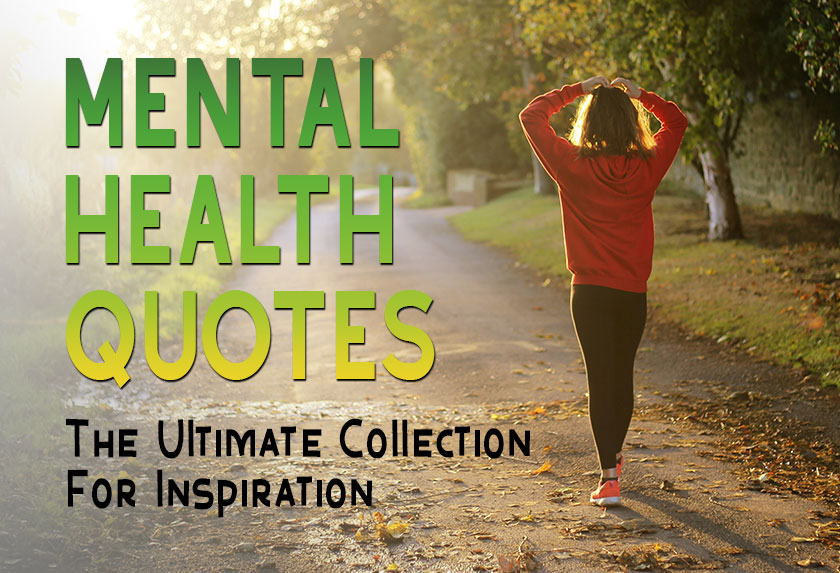In today’s fast-paced world, managing stress and anxiety is essential for maintaining happy feelings a and healthy life.
One effective way to manage stress is through regular exercise, which can help to release endorphins and improve overall mood.
Finding time for relaxation, such as through meditation or deep breathing exercises, can also greatly reduce stress levels.
Additionally, making time for hobbies and interests that bring joy and fulfillment can provide a healthy distraction from stressors.
It’s important to also prioritize self-care and ensure a good work-life balance, setting boundaries and taking regular breaks to recharge.
Seeking support from friends, family, or a professional therapist can also be beneficial in managing and overcoming anxiety.
By incorporating these strategies into daily life, it is possible to lead a happy and more fulfilled life.
The Science Behind Happiness and Positive Emotions
Happy feelings are vital for our mental health and well-being.
The science behind positive emotions like happiness shows that they have widespread benefits for our brains and relationships.
By understanding what allows us to experience more joy, calm, awe and love, we can find ways to cultivate these good vibes in our own lives.
How Happy Feelings Impact the Brain
Research shows that positive emotions literally change our brain chemistry in beneficial ways.
Feelings like happiness and joy activate reward centers in the brain, releasing dopamine and serotonin.
This boosts motivation, increases focus and concentration, and improves overall cognitive function.
Studies using MRI scans have revealed that people experiencing joyful emotions show heightened activity in areas of the brain associated with decision-making, memory, learning and creativity.
This allows us to think more expansively, see more connections and come up with innovative ideas.
Building Resilience and Well-Being
Favorable emotions also build resilience against adversity, trauma and stress.
They help regulate our nervous system so we don’t stay in a heightened “fight or flight” state during difficult times.
Joy, serenity and other pleasant feelings bring our body back into equilibrium by lowering heart rate, blood pressure and inflammatory chemicals.
Over the long-term, regular exposure to pleasant emotion is associated with better physical health, including improved cardiovascular function and immunity as well as faster recovery from illness.
Emotional well-being even correlates with longevity – happier people tend to live longer lives.
Enhancing Relationships and Social Connection
Feelings like compassion, affection and joy facilitate bonding between people and cultivate meaningful relationships.
Having practical emotions together synchronizes moods between partners, friends, families and groups. It reinforces closeness and intimacy.
Behaviors motivated by gladness, serenity and interest also build trust and encourage cooperation.
For example, happiness often compels people to engage in thoughtful acts of kindness, generosity and volunteering – strengthening social ties.
Shared worthwhile feeling is the glue that holds human society together.
How to Generate Positive Emotion in Your Own Life
If constructive happy feelings promote so many benefits, how can we actively boost these emotions ourselves?
Research has uncovered many techniques and lifestyle habits for self-generating more joy, calm and love day-to-day.
1. Show Gratitude and Appreciation
One of the most powerful ways to instantly infuse more positivity into your life is by regularly practicing gratitude.
Take time each day to mentally appreciate people who have helped you or things that make you feel lucky or blessed.
Articulating what you feel thankful for – out loud or in a journal – magnifies the pleasant feeling.
Gratitude shifts perspective so you focus less on problems and more on the gifts you already have.
This trains the brain to keep scanning for positives and enables you to feel happier even during hard times.
2. Engage in Physical Activity and Movement
Exercise isn’t just good for the body – it also gives a significant boost to your state of mind.
Any type of physical hobby that raises your heart rate releases endorphins, neurotransmitters that make you feel more productive and enthusiastic.
Beyond the short-term pleasant mood spike from a workout, regular exercise helps ease anxiety and depression over the long-term. It enhances sleep quality too.
Getting active for even 10-15 minutes per day can make a noticeable difference in your regular happiness levels.
3. Prioritize High-Quality Social Interactions
Because human beings are inherently social creatures, one of the most important requirements for sustained happiness and confident emotion is close relationships with others.
Investing time nourishing intimate friendships and family connections pays off exponentially in greater life satisfaction and well-being.
Even brief pleasant interactions with acquaintances or strangers throughout the day can lift self-esteem.
Smile at passersby and ask casual friends or coworkers sincere questions about their lives to forge these micro-connections that accumulate towards happiness.
4. Discover Work and Hobbies that Engage Your Interests
Another key ingredient for regular happy feelings is spending substantial time immersed in enjoyable ventures that allow you to practice favored skills and talents.
When you lose yourself in work, play or hobbies aligned with your true interests and values, the experience elicits zest, inspiration and vitality.
Evaluating your lifestyle and making adjustments – such a change careers or avocations – to ensure you participate more in work/leisure pursuits that fascinate you pays enormous happiness dividends long-term.
Passion-fueled engagement is central to well-being.
5. Incorporate Mindfulness, Meditation and Breathing Exercises
While the above four recommendations focus on changing external behaviors, cultivating mindfulness through meditation, breath work and other reflective practices shifts your internal landscape to also be more optimistic.
Regularly taking time to center attention on the present moment – your breath, bodily sensations, or observations of the outside world – combats rumination over past and future stressors.
This emptying of mental chatter makes room for more pleasant emotions to arise instead.
Managing Anxiety, Anger and Difficult Feelings
As wonderful as emotions like happiness, calm and affection feel, we can’t force ourselves to constantly experience them.
It’s inevitable that difficult emotions like anger, sadness, fear or disgust will arise too.
However, we can practice self-care strategies to keep unpleasant feelings in check so they don’t totally overtake our state of being.
Getting Stuck in Negative Emotional Patterns
Many maladaptive behaviors originate from attempts to numb, avoid or compensate for emotional wounds and trauma.
Turning to unhealthy coping mechanisms like overeating, addiction, rage episodes, self-harm etc often backfires by amplifying the original painful feelings instead of healing them.
When we don’t have tools to healthily express and process anger, hurt, shame or grief, these feelings end bottled up.
Unfortunately, repressed emotions pile up inside and leak out in destructive ways, or we project them onto others. Bottling harm perpetuates cycles of pain.
Learning Healthy Ways to Unpack Difficult Emotions
While tempting to suppress troublesome feelings so we can return to a hopeful state, this ignores core emotional needs going unmet.
True happiness and inner peace requires courageously acknowledging and constructively discharging painful sensations through healthy channels.
This could involve creatively expressing angst or heartache through art, music, poetry or journaling.
It may mean honestly conversing with trusted friends and asking for support around areas of insecurity.
Working with a counselor or therapist can also facilitate safely examining and resolving emotional wounds from past traumas or losses.
Unpacking unpleasant sensations through vulnerable personal work allows us to process then let go of accumulated baggage weighing down our spirits.
Only after properly mourning and releasing old hurts can we open up capacity for more joy and love.
Effective Strategies to Cope with Stress Levels
One effective strategy to regulate stress is to practice mindfulness and relaxation techniques. This can include meditation, deep breathing exercises, or progressive muscle relaxation.
By learning to focus on the present moment and calm the mind, individuals can reduce their stress and increase their ability to cope with difficult situations.
Another helpful strategy is to maintain a healthy work-life balance. This can involve setting boundaries and prioritizing time for relaxation and self-care.
Engaging in regular physical activity, such as exercise or yoga, can also help to alleviate stress by releasing endorphins and promoting a sense of well-being.
Additionally, seeking social support from friends, family, or a support group can provide a valuable outlet for expressing emotions and receiving encouragement.
Finally, making time for hobbies and activities that bring joy and fulfillment can help to distract from stressors and provide a much-needed mental break.
By incorporating these strategies into their daily routine, individuals can effectively manage and regulate their stress levels.
Reframing Challenges as Opportunities for Growth
Beyond resolving past emotional damage, adopting a more proactive mindset focused on growth and meaning hugely down regulates negative feelings arising in the present moment.
When you reframe current life difficulties, relationship struggles or career stressors as necessary stepping stones of self-actualization instead of intolerable barriers, your orientation becomes more practical.
Seeing the possibility for illumination and creative breakthrough during periods of darkness and uncertainty prevents you from getting mired down in disempowering thoughts and beliefs. You hold the intention that by engaging with grace and courage, all of life’s complexities will deepen your wisdom.
Help Others to Build Self-Esteem
A lifestyle enabling frequent happy feelings results from both boosting behaviors like expressing gratitude or helping others as well as managing difficult emotions skillfully when they emerge.
With commitment to self-care and choosing healthy responses, we can overcome negative patterns undermining well-being.
By taking full responsibility for our inner terrain, we chart the path to sustained contentment and purpose.







